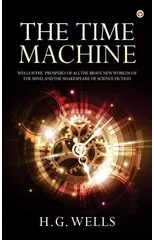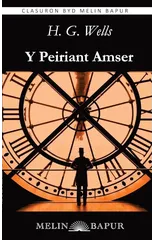H. G. Wells is often referred to as 'the father of science fiction' and this compendium of his stories contains two of his most well-known works in the genre, The Time Machine (1895) and The War of the Worlds (1897). In addition, the reader is treated to some stories of truly extraordinary dimensions: The Island of Doctor Moreau (1896), The Invisible Man (1897), When the Sleeper Wakes (1899), The First Men in the Moon (1901) and The Food of the Gods and How it came to Earth (1904). But Wells's phenomenal imagination ranged far and wide and thus we have included here two works of comic social realism, Kipps (1905) and The History of Mr. Polly (1910), stories that resound with Edwardian dreams, frustrations and triumphs. Wells is such a brilliant storyteller that well over a century after their publication, all of these texts are as fresh and compelling to us today as they would have been when his initial readers first turned their pages, often in astonishment and frequently in amusement. This is certainly a collection of the very best of H.G. Wells and we encourage you to devour them, and above all to enjoy the mercurial talent of this most original and precocious writer.
H.G. Wells
H.G. Wells was a prolific English writer best known for his science fiction novels. His most notable works include "The War of the Worlds," "The Time Machine," and "The Invisible Man." Wells' writing style was characterized by his imaginative storytelling, social commentary, and exploration of scientific concepts. He is often credited with popularizing the science fiction genre and influencing future writers in the field. "The War of the Worlds" remains his most famous work, depicting a Martian invasion of Earth and exploring themes of imperialism and the resilience of humanity. Wells' contributions to literature have had a lasting impact on the genre of science fiction and continue to be celebrated to this day.






